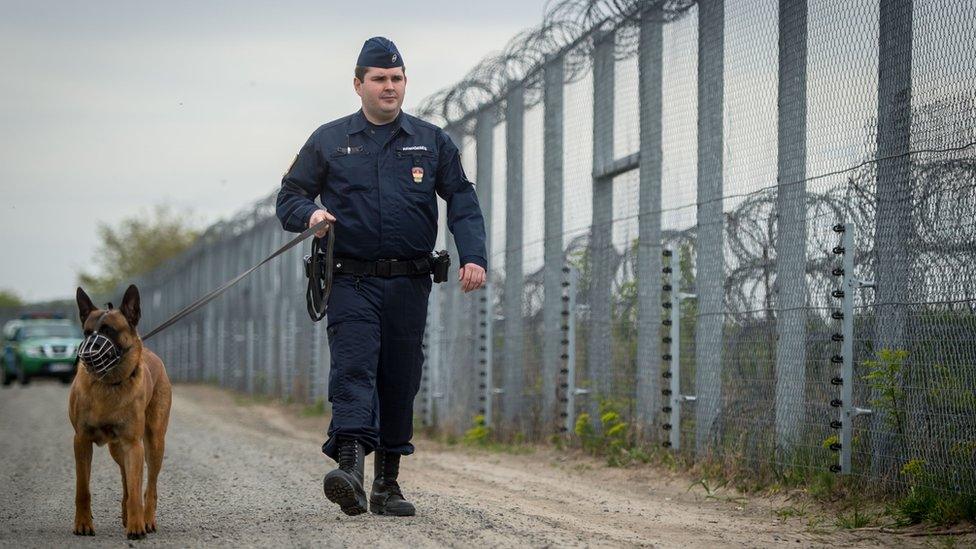The Aquarius: Migrant taxi service or charitable rescuers?
- Published
After a week of being in the political spotlight, the rescue ship Aquarius is back at sea
Italy accuses search and rescue vessels in the Mediterranean of providing a taxi service for illegal migrants and says it wants to impound the ships. The crews remain undaunted, as the BBC's Gavin Lee reports from onboard the rescue ship Aquarius.
"We are probably the most famous ship in the world right now," says Antoine Laurent as we stand on the deck of the Aquarius, sailing past Tunisia on the way to the Libyan coast.
The marine operations manager for the French-based charity SOS Méditerranée acknowledges that his team is persona non grata now with the Italian government, adding that they are exhausted and frustrated.
It's the same team of 34 that includes rescue staff, ship maintenance crew and medics from Doctors Without Borders that is now back at sea, a week after the ship found itself at the centre of a political storm over how Europe deals with migrants crossing from Africa.
Inside the former merchant ship, crew members are watching rolling TV news over a dinner of veggie fried rice, fish and fruit.
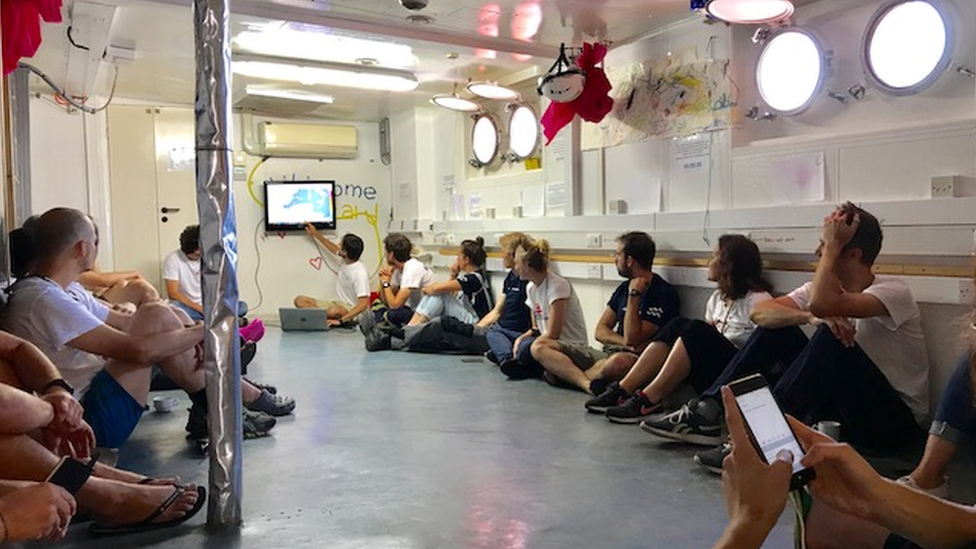
The crew of the Aquarius watch news coverage of their journey
Their week-long odyssey, now being retold on the news, started with Italy preventing their ship bringing 630 migrants ashore, with the accusation that such charity-run, foreign-flagged vessels are acting as a taxi service for migrants.
Malta also refused to take the migrants. Four days and 1,000 nautical miles later, the ship arrived in Valencia after Spain's new government offered to accept them. Madrid also urged other European leaders to stop playing "Ostrich politics" over the migration issue and deal with it properly.
On the ship's stern, hundreds of freshly cleaned life jackets hang on a line drying in the sun in preparation for the ship's arrival in the search and rescue zone, a 250km (155-mile) wide search area in international waters off the coast of Libya.
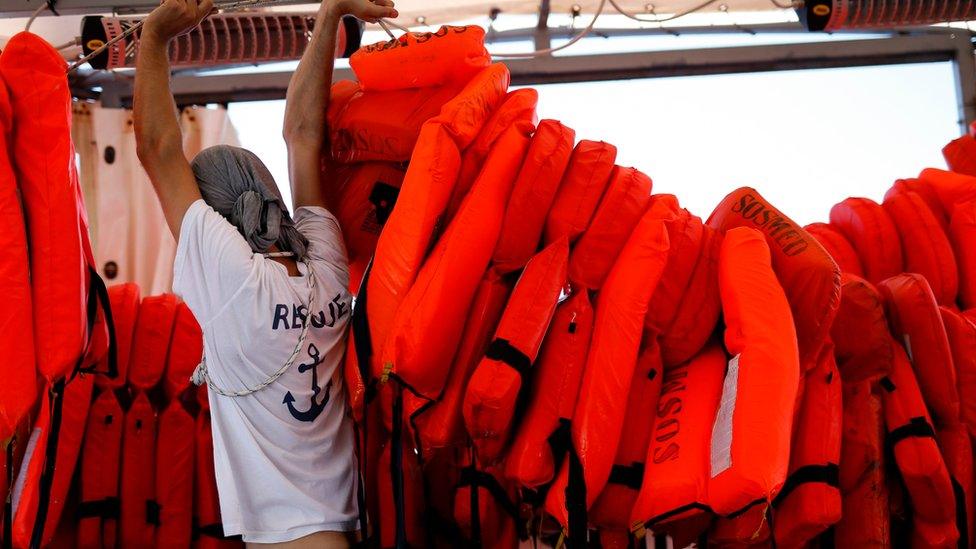
The life jackets are prepared for the next rescue operation
Inside the bridge control room a GPS screen indicates that, if waters stay calm, the ship will start a search operation looking for stranded rubber boats on Sunday morning. On the same day, EU leaders will meet in Brussels for a summit on migration.
The crew don't expect their voices will be heard or represented in a meeting focused on tightening Europe's internal and external borders.
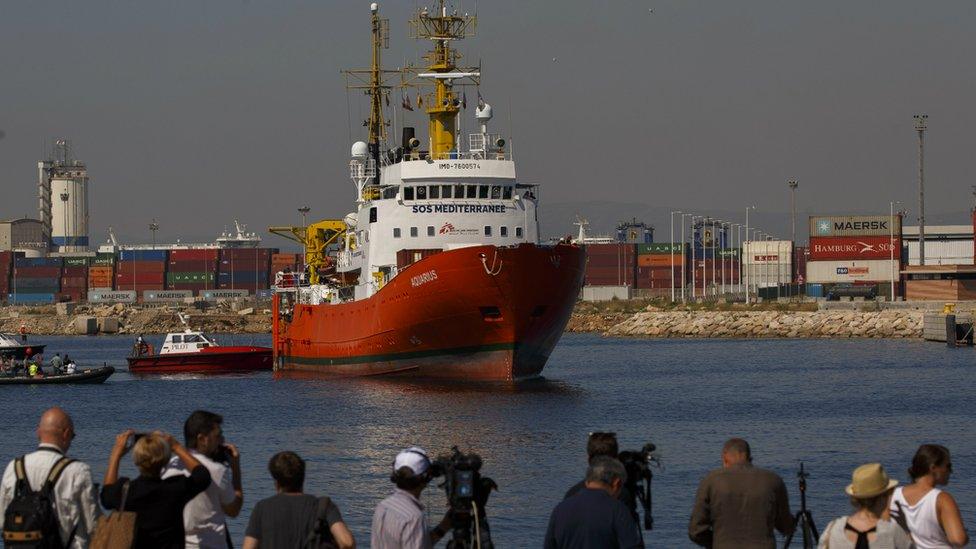
The journey of the Aquarius to Spain captured the world's attention
"We seem to have a short memory of history and people in desperation," says Max Avis, deputy search and rescue co-ordinator for SOS Méditerranée.
"I'm worried we're moving into a world of greater ambivalence of immense human suffering. I would urge any of those leaders to come out on a ship with us and see the reality we face, watch people drown, and see if they have the same opinion afterwards."
Some 16,000 migrants have been rescued at sea and taken to Italy this year, compared to 73,000 rescued in the first six months of last year.
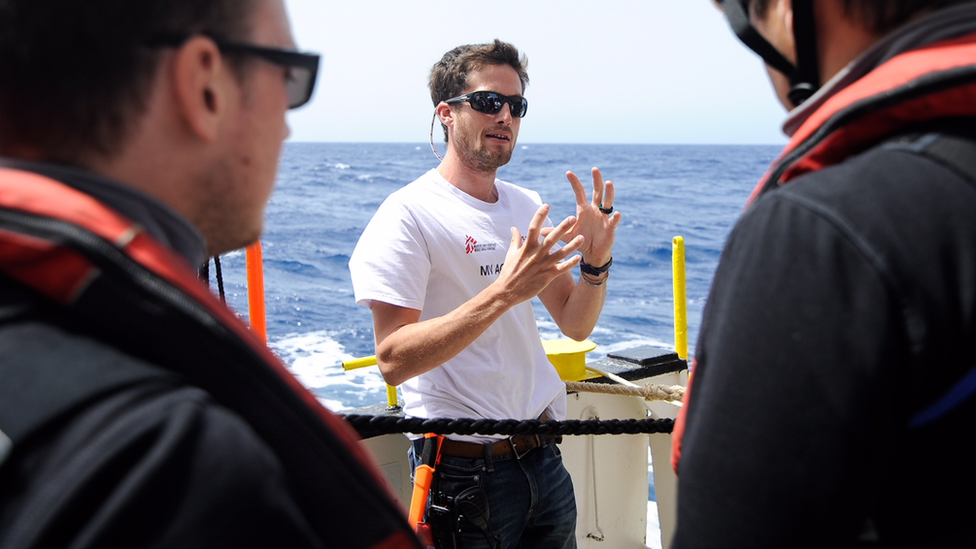
Max Avis wants political leaders to "see the reality" onboard the ship
There were more than a dozen NGO ships in operation last year, but since the EU began training and funding the fledgling Libyan coast guard - which now carries out the vast majority of rescue operations - their number has dropped to just five, the Aquarius being the largest.
In the time taken for the Aquarius to sail to Valencia and return, 220 migrants have died at sea.
The crew argue that Italy is one less asset the ship has to help those in desperate need.
But Italy claims that if the charity boats leave, migrants will no longer be tempted to make the dangerous Mediterranean crossing.
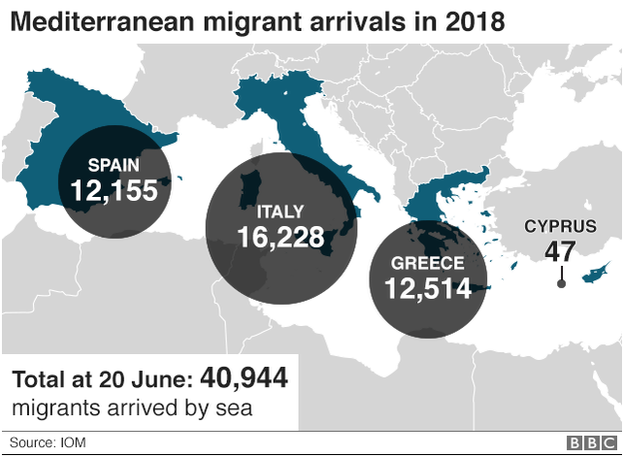
- Published21 June 2018
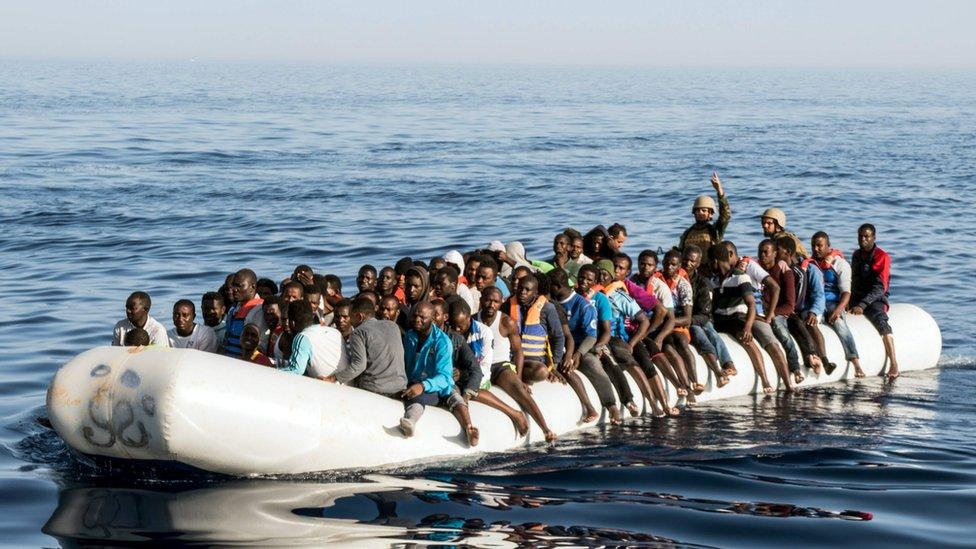
- Published1 June 2018
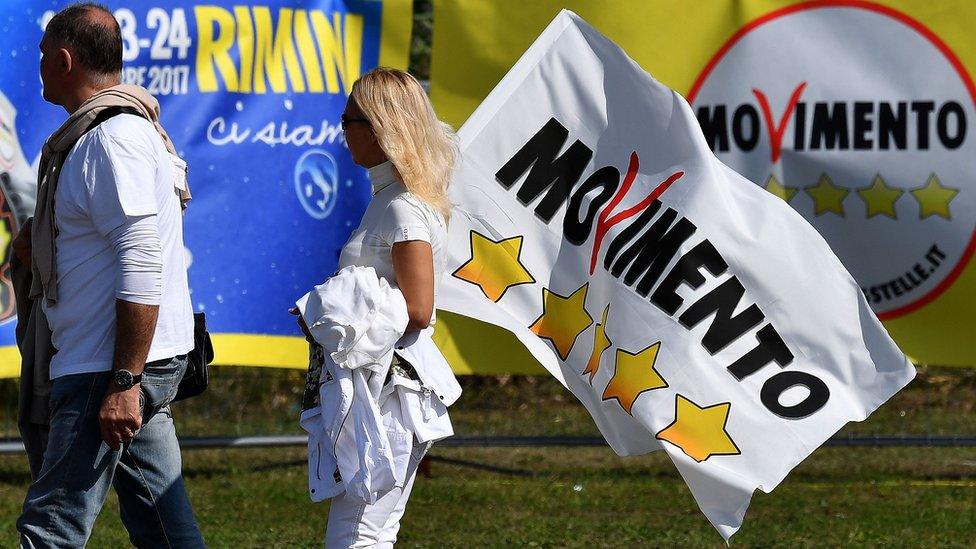
- Published20 June 2018
